

Purse strings feeling tight these days? Inflation kicking you in the financials? Worried that the next time you crave a burger, you’ll need to put it on a layaway plan?
You’re in good company.
According to the latest LendingClub report, a staggering 60% of Americans now live paycheck to paycheck. And if you think this is only a problem for low-income earners, you’d be wrong.
The same study revealed that an eye-popping 45% of those earning $100,000+ (twice the national average!) are also feeling the monthly pinch.
So, how do you navigate the rest of 2022 and prepare for a financially stable 2023 no matter what you earn?
To manage money wisely, you should first understand that each person's financial situation is different. What works for one person might not work for another.
That said, there are some general tips everyone should follow to make the most of their money and keep it from disappearing faster than it comes in.
In this article, we’ll discuss 24 top money management tips to help you get your finances in order in these uncertain times while improving your financial literacy and money habits.
One of the first steps in effective money management is to make a realistic monthly budget so you can identify where your money comes from and where it goes.This will help you make informed decisions about how to spend your hard-earned moolah and where you can cut back if necessary.
While there are helpful apps for budgeting, which we’ll discuss later, you can easily track all of this in a notepad or a spreadsheet.

Ensuring your income exceeds your expenses is crucial to maintaining financial stability, so the first step is to see how much money you have coming in.
Determining your monthly income is an important step of the process because this is what you’ll work with to create your budget and appropriately allocate finances to each budget category and line item we’ll be discussing.
Most people earn an income from their job(s). However, if you have other sources of earnings, such as investments or side hustles, include those as well.
In 2020, an Intuit survey found that 65% of Americans didn’t know what they spent the month before, with Gen Z being the biggest offenders. Tracking your expenses gives you a good idea of where your money goes and where you can cut back, so it’s a MUST for successful money management.
You can do this by keeping a running list of your monthly expenses in a notebook or spreadsheet. Alternatively, use an app that helps you categorize your spending.
What expenses should you include?
At the very least, your budget should include line items for your mortgage or rent, utilities, food, transportation, phone bill, each type of insurance you carry, childcare costs, pet food and care, clothing and personal upkeep, monthly memberships and subscriptions, entertainment, all debt repayments, gifts, charitable contributions, and allocations to your retirement, emergency, and big purchase funds.
Once you know where your money is going, you can start to make much-needed changes.
There are lots of great money management apps and budgeting tools available to help you keep track of your finances and make better spending decisions. Using one of these tools is one of our favorite money management tips. Some of our favorites include Mint, You Need a Budget (YNAB), Every Dollar, Clarity Money, and Wally.
Here’s a brief breakdown:
No matter what your financial goals are, there's a nifty app or tool that can help you achieve them. Take some time to explore your options and find the ones that work best for you.
If you’re struggling with debt, you’re not alone.
Although the pandemic triggered record-setting debt reduction, U.S. households are now falling deeper into the red amid rising prices. In fact, the average American household owes an outrageous $155,622 according to the latest NerdWallet study.
That's a lot of money to be paying interest on every month!

Eliminating your debt is one of our top money management tips, and is important for several reasons:
First, it helps you reduce how much you spend each month, allowing you to allocate that cash toward financial planning options.
Second, it improves your credit score and makes it easier to qualify for loans with better rates in the future, helping you save even more.
Finally, it gives you peace of mind and eliminates the stress that comes with owing money so you can focus on your financial future.
So, if you're ready to get out of debt, we recommend that you start by paying off your credit cards, negotiating your auto loans, potentially refinancing your home loan for better rates, and negotiating insurance costs.
Let’s take a deeper look at each of these debt-busting options individually.
Let’s face it:
America’s love affair with credit cards is stronger than ever before.
With more than 460 million cards in circulation and roughly 110 million new credit card inquiries every month, it’s no surprise that credit cards are one of the most common debt obligations.
Here’s the problem: the interest on credit cards, especially if you're only making minimum monthly payments, continues to accrue each month. This compounding interest is a real budget-killer and keeps you in the never-ending cycle of debt.
Paying off your credit cards will give you more money to save and invest each month. Plus, it’ll ease the burden that comes with carrying debt.
Fortunately, two highly effective methods can help you get the job done:
Whichever method you choose, create a budget and stick to it. With a little discipline and perseverance, you can be debt-free in no time by clearing those cards from your credit report. You can then put your credit cards to work for you with good credit habits.
With the average car loan payment being $665 for a new car and $515 for a used one, an auto loan is often one of the larger debts people carry. Although it’s tied to a physical asset, your monthly car repayment may be the reason you’ll be living on ramen, beans, and rice for the foreseeable future.
The good news is there’s a chance you can negotiate with your lender for a lower interest rate. You’ll not only save money over the life of your loan but also pay it off more quickly.
Another option is to sell your car to pay off the debt. While it may not be the ideal solution if you need a car to get to work, it could free up some extra cash each month for other debts.
If you have good credit, consider refinancing your auto loan for a lower interest rate. This can save you money, especially if rates have dropped since you took out your original loan.
For most people, a home is the largest purchase they will ever make. As such, it’s not surprising that many people find themselves struggling to pay off their mortgage. If you’re in that situation, here are a few tips to help you reduce your home loan and pay it off faster.
Whatever route you choose, by following these tips you can save yourself thousands of dollars and be mortgage-free sooner than you thought possible!
The key steps to getting out of debt involve identifying your expenses, eliminating and reducing your expenses, negotiating insurance costs, and saving money for emergencies.
But the cold hard truth is that saving money can be difficult. Recent data from Statistica reveals that the average American only saves around 5.1% of their disposable income–half the amount reported during the same time the previous year.
While it isn’t always easy to say no to that overpriced beverage, shiny new gadget, or brand new streaming service, putting away an amount each month–even if it’s small–adds add up over time.

With that in mind, let’s explore some simple money management tips and ways you can save more money.
Money leaving your account can be a real drag on your monthly budget–and your mood. Depending on how many bills you have, it can be difficult to keep track of where all your money is going.
One way to stay on top of your monthly costs is to identify recurring payments and expenses. You can do this by using your online banking system to track your accounts. Once you know where your money disappears to each month, you can make more informed decisions and cut back on unnecessary expenses.
To pinpoint recurring outgoing amounts, review your monthly budget and look for any patterns. Are there certain expenses that come up every month? If so, these are probably recurring costs.
Once you have identified these line items, work on making adjustments to ensure that they fit within your budget.
With temptations around every corner, it’s easy to let your spending get out of control. However, there are a few simple ways to reduce your expenses and start putting more money into savings.
One way to save money is to look at your spending patterns and cut back. Unfortunately, you may have to be brutal about it–especially when it comes to discretionary spending. If it’s non-essential, it’s gotta go. It's as simple as that. This is definitely one of our best money management tips.
For example, if you find you’re frequently eating out, try cooking more meals at home. Similarly, if you find you’re spending a lot on clothes, limit yourself to buying only what you need.
Do you need ALL of those streaming services? Maybe determine which ones you’ll watch shows on and then cancel the rest. You can always restart them when a show you love has new episodes.
Haven't been to the gym in a while? Cancel it. You may even be able to get a better rate when you’re ready to go again and can fit it into your budget.
Finding ways to reduce recurring expenses and subscriptions will be a quick win and allow you to use your money in other ways, like paying down your debts and building up your savings.
While insurance is a necessary expense to help protect you from catastrophic expenses, you may be paying more than you need to for the same coverage you could find cheaper elsewhere. In addition, your coverage needs may be different than they were previously.

You should periodically review your insurance coverage to ensure you’re still getting the best deal and that your coverage needs have not changed. Many companies will offer discounts for bundling different types of insurance with them and for your loyalty, so it pays to shop around.
Car insurance is an important expense for all drivers, but it doesn't have to be a budget-buster.
To keep costs down:
By following these tips, you can keep your car insurance costs under control.
While you may be locked into a specific type of plan through your employer, it pays to explore your health insurance options to see if there are ways to save money.
For example, you might be able to get a cheaper rate by switching to a high-deductible health plan and contributing to a health savings account. If you're healthy and don't use many medical services, you can likely save by opting for a bare-bones plan.
If you have a family, enrolling in a family plan rather than individual plans for each family member will potentially save you a packet.
Your employer may also have benefits you can take advantage of to save on specific types of health plans. Do some research to figure out which provider offers the most affordable coverage.
If you have a life insurance plan, you can potentially decrease costs by adjusting your coverage. For example, if you have young children who are now grown and no longer rely on your income, you may be able to reduce your life insurance coverage.
On the other hand, if you have debt, such as a mortgage, you might want to consider increasing your life insurance coverage to ensure that your family is taken care of when you’re gone. The cost to do so may not be much more than you're currently paying, so it could be worth it.
Thanks to a competitive insurance market, you have numerous options as a consumer. The key with insurance is to make sure what you're paying for accurately reflects what kind of coverage you need.
Shop around, understand your options, and don't be afraid to negotiate. You may be surprised at how much money you can save by doing so.
In the end, that's what wise money management is all about: saving money wherever you can so that you can use it where it matters most.
A survey by Bankrate revealed that 56% of Americans wouldn’t be able to cover an unexpected $1,000 bill. In fact, one of the main reasons people get into and stay in debt is because of unforeseen costs. These expenses often include things like car maintenance, medical or dental bills, expensive house fixes, and appliance replacement costs.
Saving money isn’t easy, but it's important to have a cushion of savings to cover surprise expenses or emergencies. There are a few simple ways to build up your savings account over time so that you can have peace of mind knowing you have a buffer of funds to fall back on.
One way to start saving more is to set aside a fixed amount of money each month. You can do this by setting up a direct deposit from your paycheck into your savings or by regularly transferring money from your checking account into savings.
Another way to build up your savings is to look for opportunities to earn extra money, such as side hustles, selling unwanted items, and setting your additional earnings aside in an interest-bearing account for saving.
Whatever strategy you choose, the key is to be consistent in making deposits into your savings so that it can gradually grow over time, which is an essential part of any financial plan.
An emergency fund is a sum of money set aside to cover unexpected expenses. Many experts recommend having an emergency fund that equals three to six months of living expenses–an approach we agree with as your first step in saving money.

The purpose of an emergency fund is to help you weather financial storms, such as job loss or unexpected medical bills.
Building an emergency fund can seem daunting, but it doesn't have to be difficult. Just continue to save money as we described above until you hit three to six months' worth of savings.
Once you’ve built up a healthy emergency fund, it's important to resist the temptation to dip into it for non-emergency expenses. If you do need to use your emergency fund for an emergency expense, be sure to replenish it as soon as possible.
Following these simple tips allows you to build a financial safety net that gives you peace of mind in case of an emergency. But your emergency fund is just the start. You should constantly reassess your savings goals as your money situation changes over time.
While growing your savings and emergency funds is important, one area often neglected is retirement. Unfortunately, ignoring your retirement savings because it seems so far into the future means you’ll miss out on years (in some cases, decades) worth of compound interest.
However, it's never too late to start saving for retirement. If you don’t have a retirement account, set one up today. If you haven't added to your retirement account in a long time, now is the time to start contributing to it again to help build long-term financial success.
While we recommend you add as much as possible to your retirement account, sometimes that isn't feasible. Even if you can’t add the maximum, adding as much as you can will ensure you see consistent growth.
One of the main benefits of contributing to a retirement account is that the money grows tax-deferred, which means you won't have to pay taxes on it until you withdraw it in retirement. This can be a huge advantage, especially if you're in a high tax bracket.
Make catching up on your retirement account a priority after paying off debts and building up your emergency savings. Money management isn't just for right now, it's for your future. And your future is worth investing in–literally.
A Roth IRA is a retirement saving account that offers tax-free growth and tax-free withdrawals in retirement. Unlike a traditional IRA, contributions to a Roth IRA are not tax-deductible.
However, all earnings and withdrawals are tax-free, making a Roth IRA an attractive option for retirees.
There are several key benefits of a Roth IRA, including:
For these reasons, a Roth IRA can be an attractive option for taxpayers who want to maximize their retirement accounts. Trusted financial advisors can help you navigate setting up your Roth IRA.
One of the best ways to save even more money for retirement is to use your employer's matching program. This allows you to double the amount you save for retirement.
How do you maximize employee matching for your retirement account?
First, make sure you understand how your company's employee matching program works. Most programs will match a certain percentage of your contributions up to set limits.
For example, your company may match 50% of your contributions up to 6% of your salary. This means that if you contribute 6% of your salary to your retirement account, your company will also contribute 3% (50% of your contribution).
Second, try to contribute as much as you can within the limits set by your company's employee matching program. The more you contribute, the more your company will also contribute.
Finally, remember that employee matching is just one piece of the puzzle when it comes to saving for retirement, even though it can be pretty helpful.
Even if your company doesn't offer employee matching, you can still save for retirement by contributing to an individual retirement account (IRA) or 401(k).
While cutting back on spending, eliminating debt, and saving for unexpected bills are all key factors for your financial health, one of the ways that you can save more, build your retirement, and pay down debt faster is to make more money.
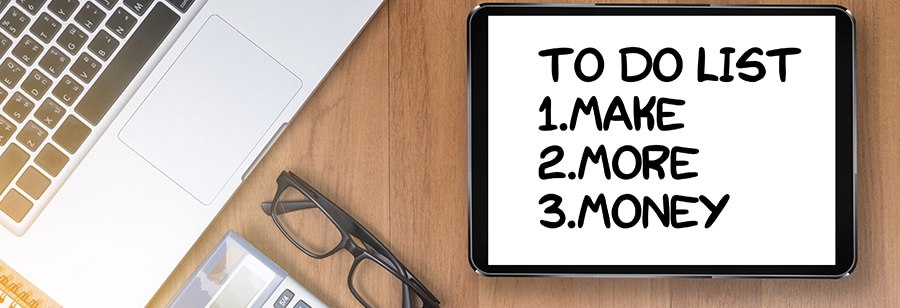
Let’s explore some of your best options for earning more:
Perhaps the easiest way to get more income is to ask for a raise or negotiate your salary. If you feel like you're being paid less than your worth or what the going rate is for your position, it's time to have a conversation with your boss about getting a raise and making more money each paycheck.
You can also try negotiating your salary when you're first hired for a position. Many people are afraid to do this, but if you don't ask, you'll never know what you could have gotten. In fact, you may be surprised to learn a Fidelity Investments survey found that 85% of Americans who asked for more compensation or benefits were successful with their counteroffer.
Negotiating your salary can be a daunting task, but it's important to remember that you’re worth fighting for. Do your research ahead of time so that you know what the average salary is for your position and what other benefits could be on the table.
Be prepared to explain why you deserve a higher salary, and be willing to negotiate. If your employer is unwilling to budge, ask for other benefits, such as more vacation days, gas cards, or flexible work hours.
Ultimately, don't be afraid to walk away if you're not being offered what you're worth and if you're sure you can find a position that pays the same or more. Remember, the goal is to get the best possible salary for your skills and experience.
By negotiating your salary, you can increase your income, make more in each paycheck, and improve your financial security.
Are you thinking about starting a side gig? Whether you're looking to make a little extra money or start a new business, there are certain steps you should follow.
If you prefer to just generate extra cash, you can look into the gig economy to make some extra cash:
The reality is that there are more opportunities than ever before to create a side hustle that supplements your current income. And you never know: that little business idea could ultimately lead to your financial freedom.
You’ll be well on your way to better financial health just by: 1) creating a budget to track income and spending and 2) reducing your expenses to pay off debt and build a savings account.
The next steps include building up your retirement account and finding new ways to earn more income by negotiating a raise or working a side gig.
But these tips are just the beginning. Learning how to manage your money wisely is a lifelong journey. The more you know about money management and investing, the better equipped you'll be to make sound financial decisions that benefit you in the long run.
So take some time to educate yourself on personal finance, and start putting these tips into practice today! You'll be glad you did as you enjoy your dream of financial freedom.
While different money management approaches work for different people, you don’t need to reinvent the wheel. There are many great tools and apps to help people like you with budgeting and managing your finances.
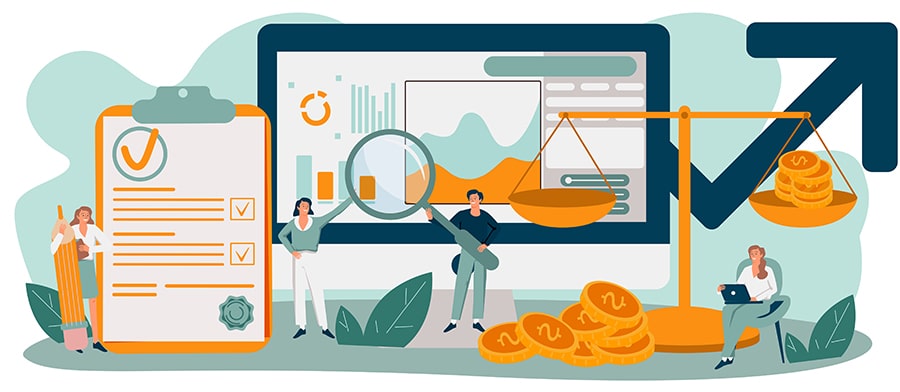
Here are the top budgeting apps we recommend:
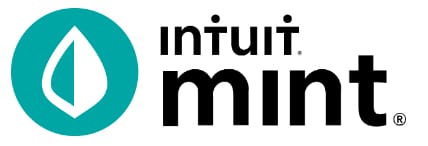
Mint is a free online service that gives you an overview of your finances by tracking your spending, income, and debts. It also offers budgeting features to help you stay on track with your finances.
While Mint can be a fantastic resource for managing your money, there are also some potential downsides to using the service.
For example, Mint requires you to link your checking account to the site in order to provide accurate information about your spending. This means that Mint has access to sensitive financial information.
Additionally, Mint may also sell anonymized user data to third-party advertisers. If you're concerned about privacy, you may want to weigh the pros and cons of using Mint before signing up for the service.
Overall, Mint can be a helpful tool for managing your finances, but it's important to be aware of the potential risks involved in using the service.

EveryDollar is a popular online money management tool we recommend and use in our family.
What are the benefits of using EveryDollar?
First, it's a great way to get a handle on your spending and personal finances. EveryDollar can help you track where your money goes and how much you're spending in each category. This can be a big help when it comes to creating or sticking to a budget.
Additionally, EveryDollar is very user-friendly. You can input your income and spending habits to get a better picture of what’s flowing in and out of your pocket each month. And if you need help creating a budget, there are plenty of resources available on the EveryDollar website.
However, there are also some downsides to using EveryDollar. First, it's not free–you'll have to pay a monthly subscription fee to use the service. Additionally, EveryDollar doesn't offer any investment management, tracking, or advice, so you'll need to look elsewhere if you're looking for help with investments.
EveryDollar is a helpful tool for managing your finances and sticking to a budget.

YNAB, or You Need a Budget, is a money management and budgeting system that has gained popularity in recent years. The system is designed to help users get a handle on their finances and make informed decisions about spending and saving.
While YNAB does have some drawbacks, the overall benefits of using the system outweigh the negatives. Perhaps the most significant advantage of YNAB is that it can help users save money.
By tracking spending and creating a budget, YNAB users are less likely to make impulse purchases or overspend in general. In addition, YNAB can help users pay down debt more quickly by allocating funds specifically for that purpose.
On the downside, YNAB can be time-consuming to set up and use, and it may not be suitable for everyone's unique situation.
Additionally, YNAB is not free to use; there is a monthly subscription fee. However, for those who are looking for a comprehensive money management system, YNAB is definitely worth considering.

GoodBudget is a popular money management and budgeting tool that can be used to track spending, set your financial goals, and stay on top of bills.
One benefit is that GoodBudget makes it easy to see where your cash goes each month. You can create different budgets for different areas of spending, and GoodBudget will give you a clear overview of your progress and can be helpful in terms of sticking to a budget.
Another benefit is that GoodBudget allows you to sync your bank accounts, so you can always have up-to-date information on your finances from your financial institution. This can help you avoid overdrafts or late fees.
However, there are also some downsides to GoodBudget. One downside is that GoodBudget requires you to input a lot of data manually. This can be time-consuming and confusing, especially if you have complex finances.
Another downside is that GoodBudget is a subscription-based service, so there is an ongoing cost associated with using it.
In summary, GoodBudget is a helpful tool for managing your finances, but it is important to weigh the pros and cons before deciding whether or not it is right for you.
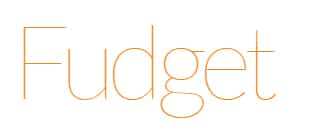
Fudget is a popular money management and budgeting tool that can help you keep track of your finances and make better spending choices.
One of the main benefits of Fudget is that it is very easy to use. You can simply enter your income and expenses into the app to get a clear overview of your finances. This can help identify areas where you may be overspending or where you could cut back.
Another benefit of Fudget is that it is free to use, which makes it an affordable option for people who are looking for a budgeting tool.
However, Fudget also has a few cons. For one, it doesn’t offer any features for investment tracking or long-term financial planning. If you’re looking for a tool to help you with these things, Fudget may not be the right choice for you.
Additionally, some users have reported that Fudget's customer service is not always responsive, which can be frustrating if you run into any problems while using the app. Although Fudget is a helpful budgeting tool, it may not be right for everyone.

PocketGuard is a personal finance app that can help you manage your money and stay within your budget. The app links to your bank account and credit cards, tracking your spending.
PocketGuard categorizes your expenditures, so you can see where you are spending the most money. The app also has a "Safe-to-Spend" feature, which tells you how much money you have available after bills and other essential expenses are paid.
PocketGuard can be a useful tool for managing your finances, but there are also some negative aspects. PocketGuard does not provide investment advice or guidance on how to save money. In addition, the app requires a monthly subscription fee, which may be a deterrent for some users.
PocketGuard is a helpful tool for budgeting and tracking spending, but it is not without its drawbacks to consider.
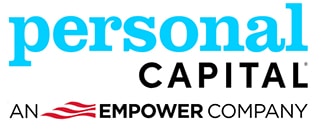
Personal Capital is a tool that can be used for managing your money and budgeting.
The tool provides a variety of features that can help in personal financial management, including the ability to track income and expenses, set up a budget, and track investment performance.
It can also be used to monitor credit card balances and track net worth.
Like all tools in this space, Personal Capital also has its pitfalls. One is that Personal Capital charges a monthly fee for its services. Another downside is that it requires users to input a significant amount of financial data, which can be time-consuming and overwhelming for some users.

Monarch Money is a money management app that lets users see their account balances, recent transactions, and spending all in one place. The app also provides tools for budgeting and goal setting. It can be used by individuals or couples and is available for both iOS and Android devices.
Some of the benefits of Monarch Money include the ability to track multiple accounts, monitor spending, and set up budgets. The app also includes features such as bill payments and reminders, which can help users stay on top of their finances.
One of the cons of Monarch Money is that the app is not currently available in all countries and does not support all banks and financial institutions. Additionally, some users have reported issues with the app's customer service.
While Monarch Money is a helpful tool for money management and budgeting, it's important to be aware of its potential limitations.

Simplifi By Quicken is another handy money management app that can help you keep track of your income and expenses, create a budget, and save for your financial goals.
One of the best things about the tool is that rather than sorting through bank statements or tracking receipts, you can simply enter your transactions into the app and see an overview of where your money is being spent. Simplifi also makes it easy to stick to a budget by categorizing expenses and setting limits for each category.
One limitation of Simplifi is that it doesn't currently support investment tracking, so, you may not want to opt for this tool if you're looking for an all-in-one solution for managing your money.
However, if you're just starting out with budgeting and are looking for an easy-to-use app to get started, Simplifi is definitely worth considering.
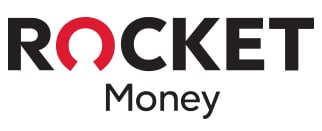
Rocket Money is a new app that promises to help users like you manage your money better by connecting to your bank account and tracking your spending.
The app is designed to be simple and easy to use, with clear instructions on how to set up a budget and track expenses. Rocket Money also offers several unique features, such as the ability to set up savings goals and track progress over time.In addition, the app provides users with tips on how to save money and reduce debt.
While Rocket Money offers many beneficial features, the app is only available in English, which may not be ideal for users in other countries.It also isn’t available on all devices yet, so users may need to wait for an update before they can download it.
One last thing to consider is that the app's design is relatively basic. If you want a more sophisticated money management tool, you may be disappointed.
Overall, Rocket Money is a useful tool for budgeting and tracking expenses, but it is not perfect.

Wally is a well-known managing money app that can be used for budgeting and tracking expenses. It’s free to download and easy to use, making it a great option for people who want to get their finances in order without paying for personal finance tools.
Wally allows users to track their income, set budgets, and track spending. The app also provides insights into where users spend their money, which can be helpful in pinpointing areas where they may need to cut back.
Unfortunately, users have reported that the app can be inaccurate at tracking expenses and doesn't always provide the most up-to-date information on budgeting trends.
Additionally, Wally doesn't offer any features for investments, so it may not be the best option for people needing a complete money management solution.
The bottom line: Wally is a great managing money app for budgeting and tracking expenses. However, the app has some limitations that may make it less than ideal for some users.
Each budgeting and money management tool or app has pros and cons. The key is to find one that best fits your current financial situation and start using it.
None will be perfect or fit every use case, but since tracking your expenses and income is one of the hardest parts of the process, picking a tool to help you do that is your first step to better money management.
Hopefully, this article has given you some insights on where to start and how to begin managing your money wisely.
Remember, the goal is not to become perfect at managing your money overnight. Rome wasn’t built in a day, and neither is a solid financial foundation. Start with baby steps and work your way up. With time and effort, you’ll be well on your way to financial health!

